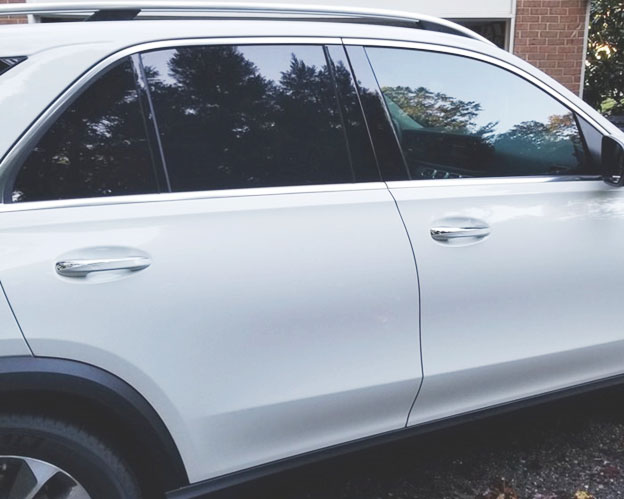While the ineffective application of the rules governing the tint laws for windscreens and windows of privately-owned motor vehicles in Guyana continues to be pervasive, the authorities in Barbados appears to have decided that the incidence of tints to vehicles to the extent that they may hinder the effective pursuits of law enforcement will be a ‘no no’.
Earlier this week the authorities in the CARICOM member state unveiled “new tint regulations” aimed at “enhancing public safety and supporting law enforcement in combating crime.” The authorities in Barbados say that the new tint measures, when put in place, will serve as a support mechanism to “help officers better investigate criminal activities by ensuring increased visibility inside vehicles.”
In some Caribbean territories, Guyana included, tinted windows and windscreens, while aiding the privacy of the occupants and acting as sunscreens, are widely regarded as mechanisms designed to obscure in-vehicle activity much of which may be illegal or designed to shield the occupants from activities associated with the commission or intended commission of crimes.
The release of the new regulations associated with tinted windows and windscreens in Barbados focuses on “controlling the level of tint on vehicle windows”, a move which the report says is expected to “deter criminal behaviour and improve the ability of law enforcement to monitor suspicious activity.”
While the tint laws in Guyana dictate that “a vehicle is only permitted to have tint that allows 67 percent light to pass through its glass” and that “any darker tint requires the permission of the Minister of Public Security,” much darker tints are seen as status symbols linked to exemptions associated with ‘connections’ with influential institutions and individuals in the society. Vehicles possessing levels of tint that renders it impossible for persons outside to determine to any extent activities inside the vehicle are commonplace in Guyana. Not infrequently, when police queries are applied to tinted vehicles owners/drivers resort to what is described as ‘going upstairs’ to have their infractions validated and to persist with their illegal tints.
Failure by to effectively enforce tint laws in Guyana is generally seen as an extension of a national policing culture in which status and influence bring with them the prerogative of exemption to rules and regulations to which the ‘average Joe’ is expected to adhere to. In the instance of Barbados where, as well, there are seemingly lesser public challenges to tint laws, tinted windshields are illegal and any tint must not obstruct the identity of the driver and passengers.
Here in Guyana the extent of ‘exemptions’ from tint, seemingly based on the wider societal clout of the owner/driver of the vehicle, is widely believed to be the main reason why the illegal use of tint has become difficult to eradicate. As a general rule the status/influence of motor vehicle drivers in Guyana is frequently determined by the extent of the darkness of their vehicle’s tint, in which case, they are frequently able to avoid police queries.










